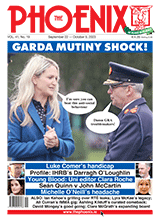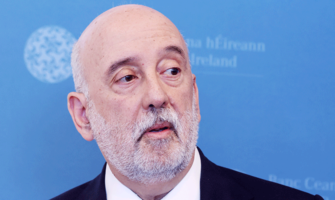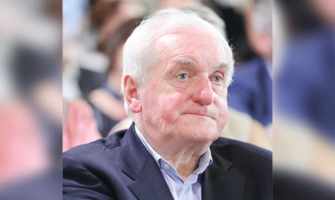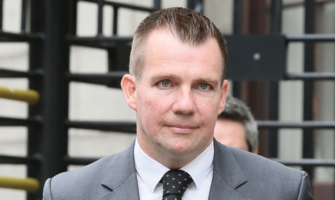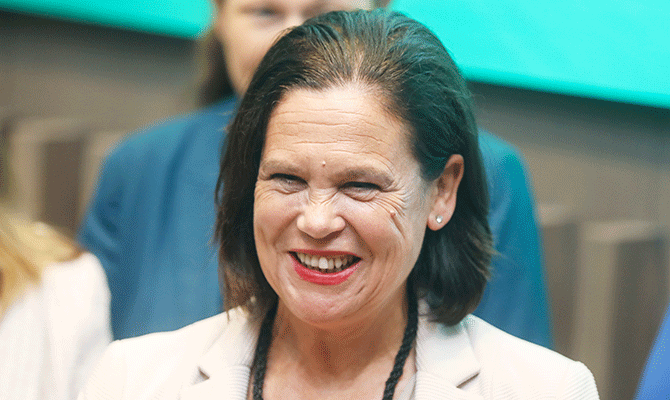
Mary Lou McDonald
AOIFE MOORE, political journalist and author of the latest ‘tell-all’ book on Sinn Féin, The Long Game — Inside Sinn Féin, has cleverly developed Shane Ross’s trick in promoting his book on Mary Lou McDonald. Ross told how SF denied him access or information but yet somehow he managed to dig up the party’s terrible secrets. Moore’s advance publicity has been a public dramatisation of her relations with SF which, she recounts, was desperate to hide the truth from her. And yet she still managed to unearth the reality of this “strange secretive party”. Five pages at the beginning of the book are devoted to SF’s stone-walling of Moore and another 10 pages refer to her sources.
In both cases the message is the same – Sounds interesting? Buy my book. But the advance, hackneyed hype underlines the poverty of real, new information in these books.
Goldhawk knows that the prickly, defensive reactions of some SF leadership personalities can be difficult for the media, even those that don’t look to the Eoghan Harris school of journalism. The reasons for such paranoia – the Section 31 legacy and a large part of the Dublin media that became virtually unionist, not to mention the Troubles – do not excuse this blinkered outlook but it helps to explain it.
The other, even more clichéd device that Moore uses is the presentation of Gerry Adams as a villainous control freak and cuddly Martin McGuinness as the essence of sweet reason. More amateur drama but, more important, it is mirrored in the construction of a storyline about a plan for McGuinness to take over the SF leadership from Adams, at least on a temporary basis.
Moore writes that during the intense pressure that SF and Adams came under due to the latter’s brother, Liam, being convicted of child abuse in 2013, an attempt was made to force the SF president to stand down temporarily. This was because of ongoing investigations by the police and also because the Police Ombudsman raised questions about Gerry Adams’s alleged delay in reporting his knowledge of the abuse to the police.
In Moore’s own account there were several players with different agendas including Leo Green, a strong political opponent of Adams. Would a temporary step down really have been temporary given the antagonism implied in the book?
After a complex account of the incipient coup, Aoife Moore concluded: “McGuinness didn’t want to be leader and was either too unsure or too intimidated to say that he definitively wanted Adams to go.”
This coup sounds even tamer than those Blueshirts that came for Enda Kenny in 2010.
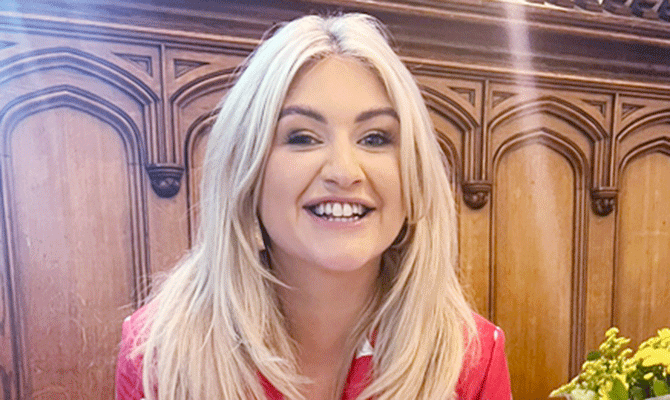
Aoife Moore
Despite the long-time, media myth of McGuinness and Adams being separate and distinct political operators, the reality is that the two created a rock-solid partnership that lasted for decades throughout the Troubles and the peace process. It is very hard to believe that McGuinness would have moved against Adams – permanently or otherwise – unless the latter told the former that he wanted to step back on a definitively temporary basis.
For a political journalist, Moore is surprisingly apolitical in her account of how and why Michelle O’Neill became northern party leader and subsequently SF vice-president, writing that McGuinness had “decided on his successor” four years before she was selected by the ard chomhairle in 2017 (on a recommendation from Adams).
In fact, O’Neill was chosen for largely the same reasons as McDonald, ie she represented a new generation of leaders, she had proved herself as a Stormont minister in two departments and she was a woman. These political, strategic factors were key and she was neither a creature of McGuinness nor Adams. O’Neill’s rise was also helped by her base in east Tyrone, where political attitudes to the peace process were less uncritical than elsewhere in the republican milieu (see The Phoenix 6/9/19).



